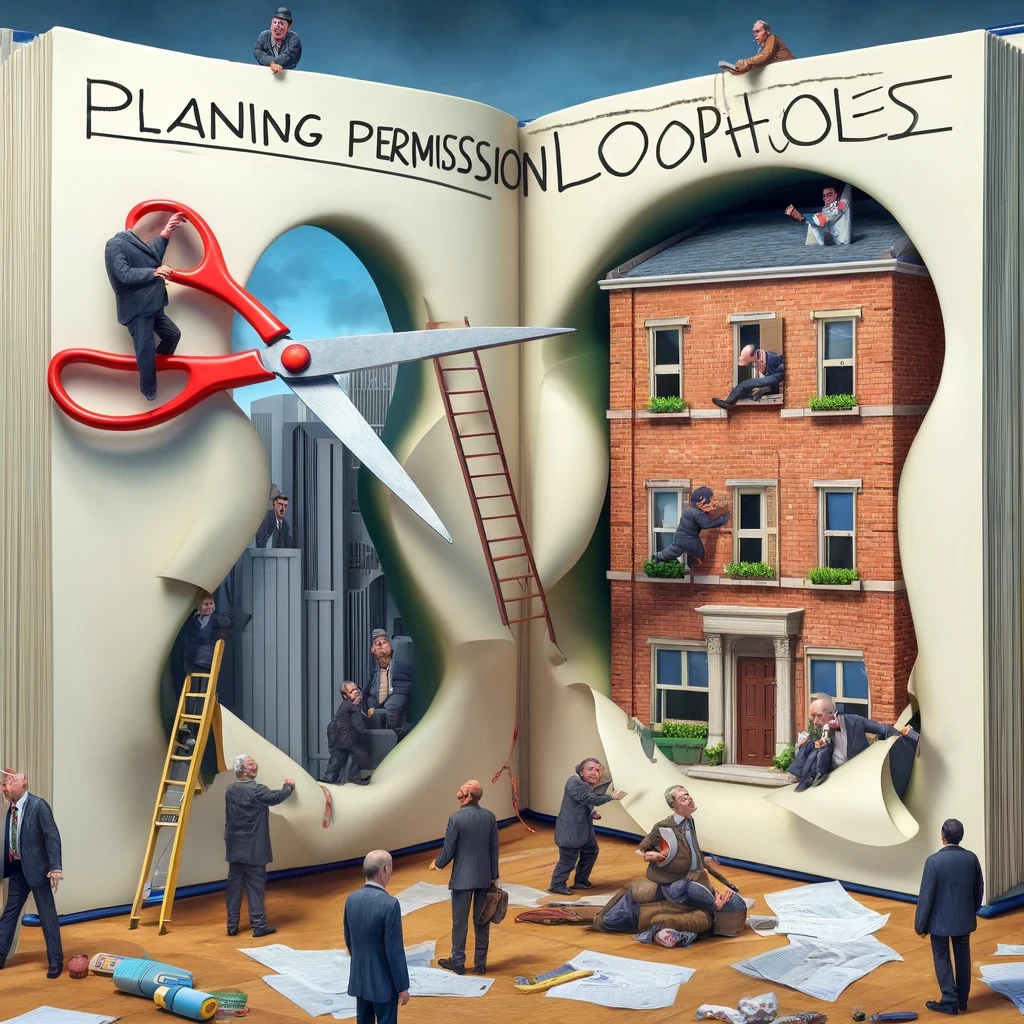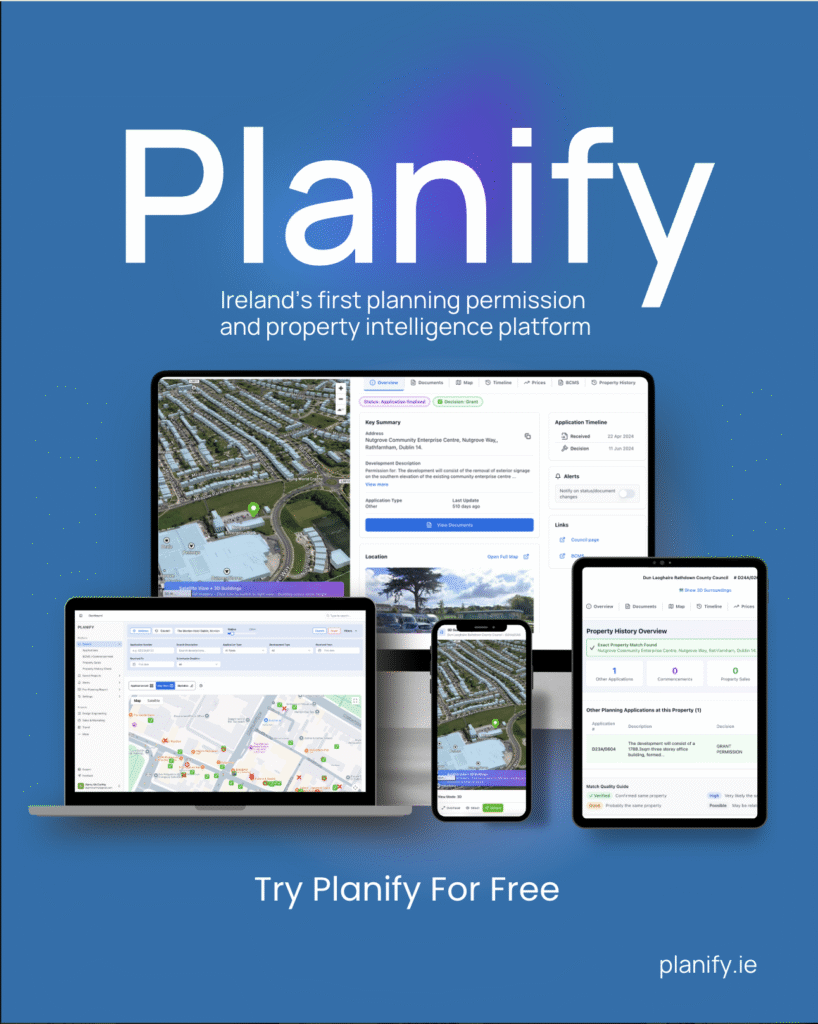Planning Permission Loopholes in Ireland

In Ireland, the term “loopholes” in the context of planning permission often refers to lesser-known aspects of planning laws and regulations that may provide more flexibility or avenues for property development than commonly understood. It’s important to approach this topic with the understanding that all construction and development activities must comply with the relevant planning laws and regulations. The aim here is to shed light on certain provisions and exemptions that might not be widely known but can be beneficial in specific circumstances.
For a full guide on “Exemptions” check out our dedicated page. One of the most significant areas where property owners can find flexibility is under the category of “exempted development.” These are types of development that do not require planning permission because they are considered to have minimal impact on neighbours or the environment. Examples include:
- Small Extensions: In certain circumstances, small extensions to the rear of a house may not require planning permission if they meet specific criteria regarding size and height.
- Converting a Garage: Converting a garage attached to the rear or side of the house into a living space may also fall under exempted development, provided it does not increase the original floor area significantly.
- Garden Sheds and Buildings: Garden sheds, greenhouses, and other similar structures for private use can often be built without planning permission, subject to size limitations and placement within the property.
For a full guide on “Change Of Use” check out our dedicated page. Another area where flexibility exists is in the change of use of a building or land. In some cases, changing the use of a property does not require planning permission if the new use falls within the same class as the previous one or is considered similar enough. For example, changing an office into a shop might not require permission if the impacts on traffic, noise, and neighbourhood character are minimal.
Temporary structures, such as marquees used for events, may not require planning permission if they are to be in place for a short duration. However, the definition of “temporary” can vary, and there are limits on how long such structures can remain without needing permission.
Certain types of agricultural development enjoy a level of exemption from standard planning permission requirements. This can include the construction of farm buildings under a certain size, provided they are a certain distance from other dwellings. However, it’s crucial for agricultural developers to consult the specific provisions as there are detailed conditions that must be met.
In recent years, there has been a push towards sustainable development, including the installation of solar panels and other renewable energy sources. In many cases, these installations are considered exempted development, provided they meet specific criteria related to size, placement, and impact on the environment.
Conclusion
While these “loopholes” provide avenues for development without the need for planning permission, it’s crucial to approach any project with due diligence. Regulations can vary by locality, and what might be exempt in one area could require permission in another. Moreover, even exempted developments must comply with building regulations and standards. It’s always advisable to conduct thorough research or consult with professionals to ensure compliance with all relevant laws and regulations.




